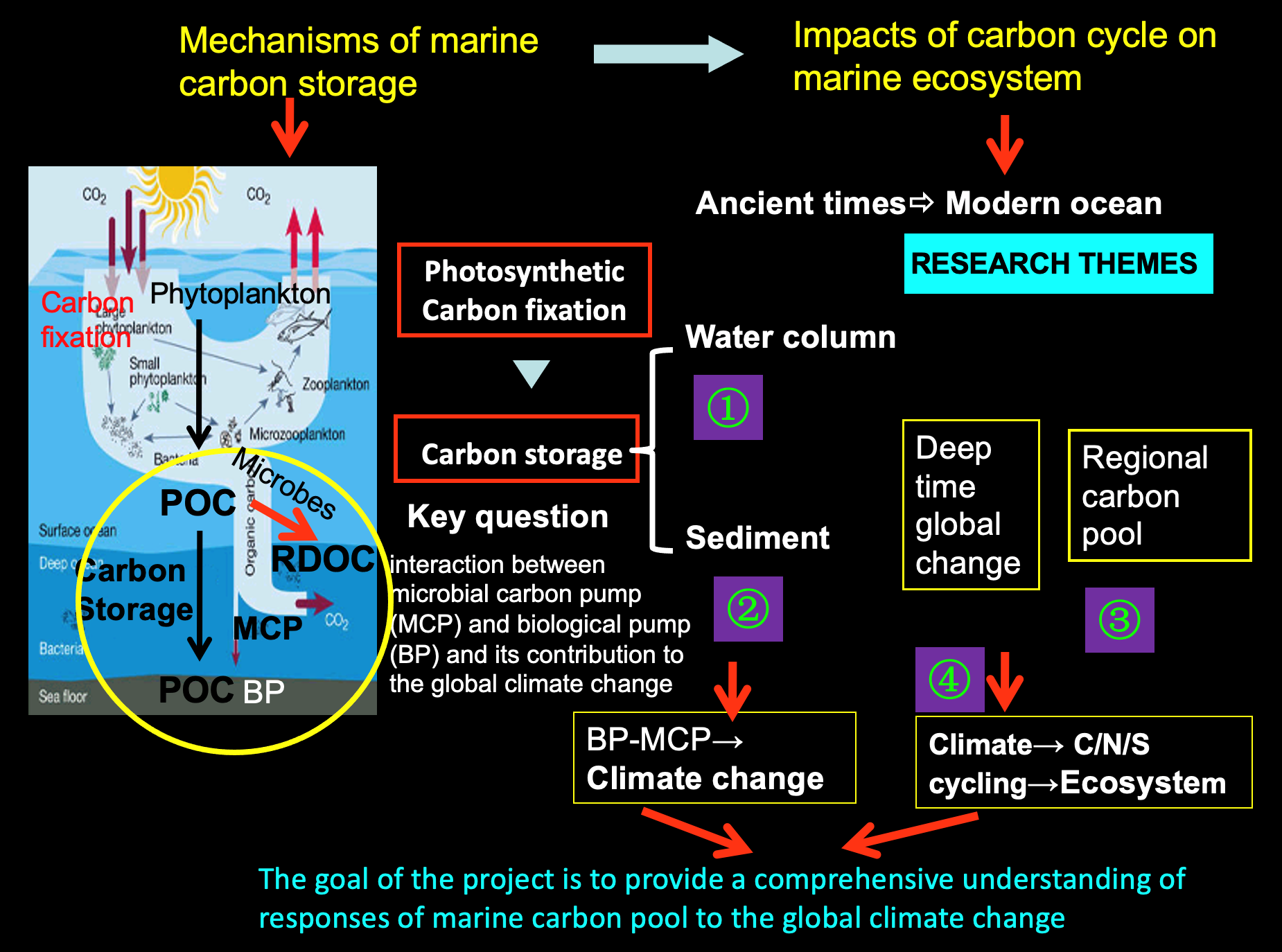Marine carbon cycle is in responses to global climate change and anthropogenic activities, and throws significant impact on ecosystems. However, it remains unclear concerning the sensitivity of marine biogeochemical cycles to the climate change and the key processes to impact long-term marine ecosystems. By focusing on the interaction of microbial carbon pump and biological pump, the coupling of carbon, nitrogen and sulphur cycles, and the integration and comparison of modern days with critical periods of Earth history, the project aims to decipher the mechanisms of marine carbon storage, biogeochemical processes in response to climate change and anthropogenic activities, and their impacts on ecosystems. Four research themes conducted in South China Sea, Bohai Sea and Yellow sea in China will include the interaction between microbial carbon pump (MCP) and biological pump (BP), elemental biogeochemical cycles across sediment-water interface and its contribution to carbon storage, variation of regional carbon pool in response to global climate change and anthropogenic activities, coupled carbon, nitrogen and sulphur cycles in response to deep time global change and their impact on marine ecosystems. This research tries to fill the critical gap between short-term processes in modern oceans and the long-term effects in ancient times. The goal of the project is to provide a comprehensive understanding of responses of marine carbon pool to the global climate change on multiple spatiotemporal scales, and to identify the naturally or anthropogenically-driving ocean acidification processes, key processes of carbon storage, and their impact on marine ecosystems. In this project, four themes include 1) interaction between MCP and BP and its contribution to marine carbon storage. 2) effect of carbon, nitrogen and sulphur cycles across sediment-water interface and its contribution to marine carbon storage. 3) regional carbon pool in response to global change in modern days. 4) coupled carbon, nitrogen and sulphur cycles in response to deep time global change.

(Edited by Kai Tang)
(Editing Contact:xjz@xmu.edu.cn)